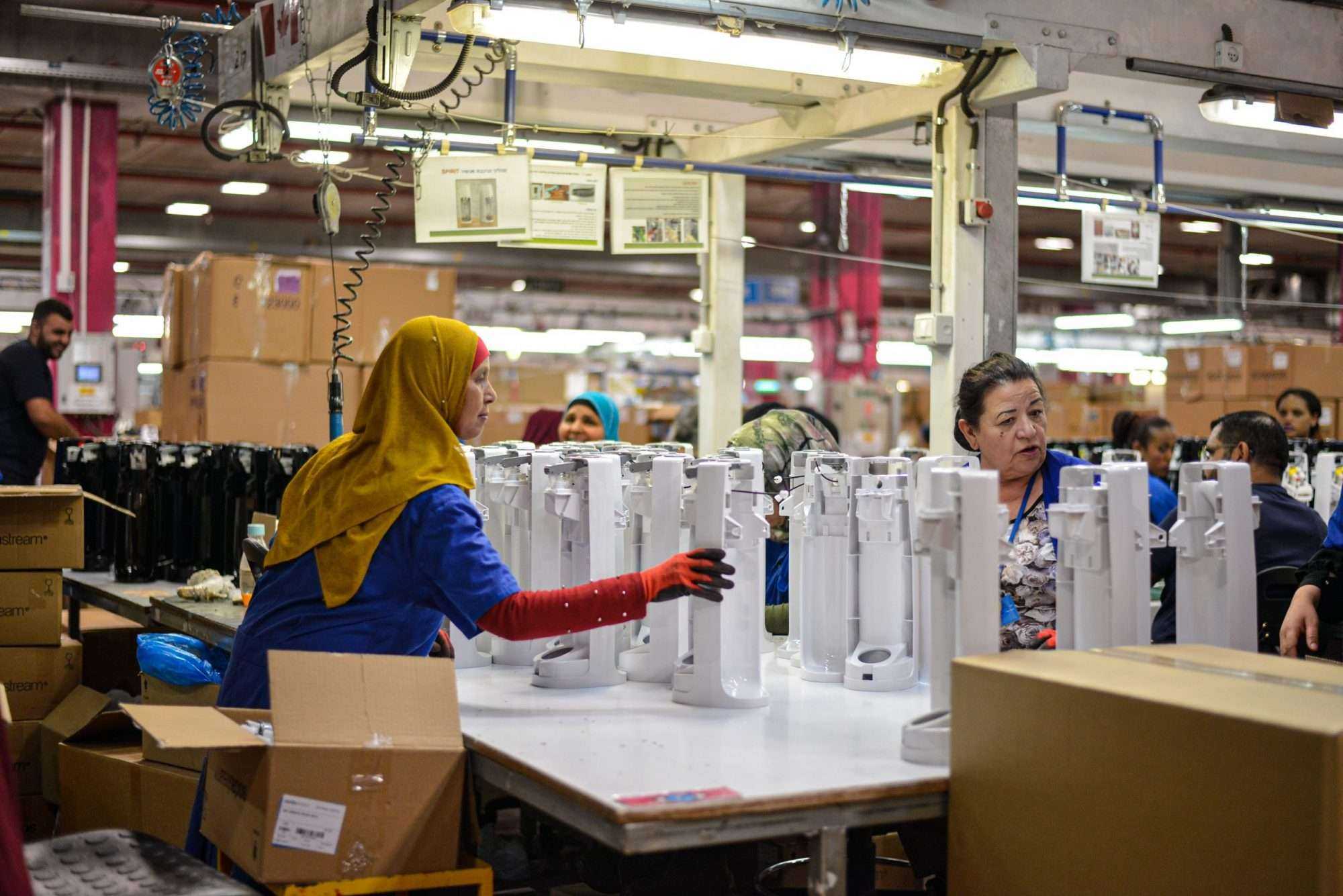on
BY STEVEN KASZAB
Having been a manufacturer for approximately 25 years and the son of a manufacturer, I feel somewhat qualified in commenting upon the state of the manufacturing sector and its relationship with the retail sector.
A long time ago a manufacturer could request money up front to help finance the large projects that they were involved in, and most large retailers would comply. There was a certain honoured respect between each sector of the economy. This all changed once the large retail sector became attached to cheap priced products made offshore.
Whether in: China, India, Mexico or many other national economies, our retailers hitched their wagons to the foreign manufacturers’ wagon trains. Can’t blame them at first. Foreign manufacturers pay their employees approximately 1/10 to 1/3 what: Canadian, American and European Manufacturers have to pay, often with no medical benefits offered. Our unions wage a quiet war against this situation, since a labourer is a labourer no matter where they may be located. Manufacturing learned how to carry out business within this foreign threat everywhere.
Retailers made off like bandits; importing a woman’s blouse landed for $1.98 and retailing it for $55-85.00.
I make store fixtures, retail furniture, and salon and spa equipment. The only way I can make some money is if I specialize and approach high-end retailers who demand custom made fixtures in small quantities. The Importers among us have developed foreign manufacturing to an art, helping offshore manufacturers to improve their products quality while maintaining their far less costly pricing levels. Such firms employ millions of citizens in warehouses across North America and Europe, warehousing, but not making the products. Since the pandemic has ended, these firms and their retail customers have moved back to importing products and fixtures from offshore. Prices have increased a bit, but they still remain far more competitive to our pricing. Retailers discovered the power of online markets, and the import power of the Amazons of the world brought profitability to many retailers also.
Manufacturers have responded to this love affair between our governments who allow it, importers who import the products and foreign manufacturers worldwide. We prefer to think of it as a group of capitalists that have no loyalty to their community, neighbourhood, or nation. Such people have affected the lives of millions who have lost their jobs to workers in other lands. Retailers have responded by charitable works, promoting their corporate vision within the communities they are located in. Regional economic droughts have ravaged North America’s small towns and created many societal problems that we deal with daily.
How do retailers make profit?
- Find sources of the products they wish to sell, preferably cheap in price but high in quality. Add profit.
- Limit the number of employees that should be servicing customers to a bare minimum. Low labour costs.
- Have products made at an extreme price point, no matter how, where, or if safely made. Add profit.
- Own every aspect of the transportation, source (supplier) and retail environment. Add profit to each.
- During the pandemic create artificial shortages so prices can be justifiably increased.
- Create monopolies and in the case of communication technology oligopolies that control the marketplace.
- Befriend/partner with all levels of government. Keep your friends close, your questioning enemies closer.
What have I seen retailers do to manufacturers? A client of mine was contracted to provide two to three stores for Hudson Bay retail. No money was provided at the beginning. Once the stores were completed the manufacturer waited for four to five months to receive payment.
Once they asked for payment, a thick book arrived with multiple complaints and a demand for a 20% discount on their invoices. The stores were operating for months, and the complaints were mostly scuffs on a cash counter or a store fixture. Only after we threatened to go into the stores to retrieve our products did they begin paying.
Another time a retailer received a half million dollars worth of store fixtures, and after receiving them closed shop and therefore would not pay for these items. Some forms of these incidents have happened multiple times. Retailers have huge costs, and they will often take it out on their suppliers. A manufacturer of religious plaques from Stayner, Ontario received multiple orders from Canada’s largest retailer. Sales of the product were low, and the supplier received no payment for their product. The retailer then told them their product would stay in store and they’d be paid as it sold. This was not what was agreed upon.
Manufacturers try to charge as much as they can, knowing that a retailer, or go between, can go out of business at any time. Restaurants have been the most difficult to work with, and the hardest to receive payment from. So, we go to larger corporations, and yet they too manipulate and push manufacturers around. Domestic mass manufacturing will eventually become a thing of the past. Only specialized firms who find a specific niche will survive and prosper in North America and Europe.
Manufacturers in North America and Europe are required to accept and work within the local/regional regulatory and legal framework, while our foreign competition does not. While Canadian manufacturing is required to live up to the Federal Green Initiative: Chinese, Indian, Asian, African and Caribbean-Latin American Manufacturers do not, unless their homeland requires them to do so.
Labour/Environmental Laws are very demanding, but we live in communities that need to be safe, environmentally clean for generations to come so we accept them. Not so in many other foreign environments. I have always worked towards a future that has clean air-water-land masses. Pollution we dislike, but why are 1st World Manufacturers forced to bear all the costs to clean and maintain our land mass while our so-called developing nation competitor’s say they are, but do not invest as we do.
It is not a coincidence that cheap imported products are made and provided in nations that are not free, or at peace with themselves, their people or other nations. China, India, Mexico are fine examples of nations where humanity is often not respected, where labour is used and abused. I am sounding like a complainer, am I not? I guess I am complaining. Hopefully you are listening and thinking about some of what you have read.
Henry Ford once said, “Quality means doing it right with no one looking.” Domestic manufacturers make superior quality yet most of our neighbours do not recognize this reality. Is our manufacturing sector working in a broken system? A bad system will break a good person every time. Sometimes we feel broken, lost in a system that shows us the carrot, only to give it to others almost every time. Small and medium manufacturers are often artisans finding themselves fighting monsters of mass production. Are we manufacturers evolving into the new luddites or an endangered species?
Stay in the loop with exclusive news, stories, and insights—delivered straight to your inbox. No fluff, just real content that matters. Sign up today!













